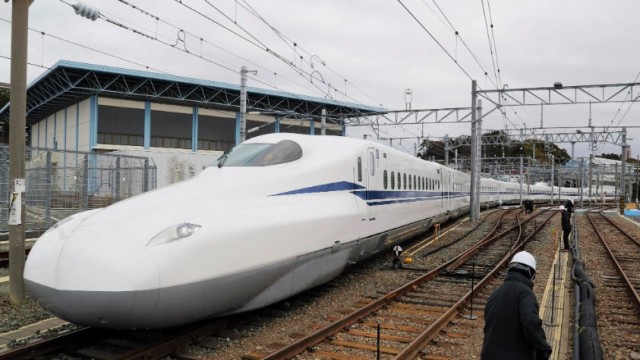"Citing financial risks, Japanese companies, led by East Japan Railway, pulled out of the $21 billion Kuala Lumpur-Singapore High-Speed Rail (HSR) project"
The decision by major Japanese railway corporations, such as East Japan Railway Co., to pull out of the ambitious Kuala Lumpur-Singapore High-Speed Rail (HSR) project has come as a surprise and will have a significant impact on the project's future trajectory.
The sudden withdrawal, ascribed to monetary hazards and an apparent deficiency of backing from the Malaysian government, has a substantial impact on Japan's ambitions to control East Asia's burgeoning high-speed train industry. The possibility of Chinese cooperation has become possible due to this unexpected development, which adds an exciting new dimension to the project's future.
The withdrawal, viewed as a pivotal moment for the estimated $21 billion project, comes at a critical juncture, with the Malaysian government steadfast in its commitment to secure private financing.
As the deadline for bids approaches next Monday, the landscape has undergone a seismic shift. Local Malaysian companies are hastily forming alliances with Chinese and European partners, eager to step in and fill the void left by the departure of Japanese industry giants.
The project's allure was palpable when it was first conceptualized in 2013. It promised to slash travel time between Kuala Lumpur and Singapore to a mere 90 minutes, a stark contrast to the arduous four-hour car journey. Japanese interest in the venture heightened in 2015 with the proposed deployment of the Shinkansen system, showcasing Japan's technological prowess in high-speed rail.
However, the project encountered obstacles in 2021, succumbing to financial concerns and ultimately halted by then-Malaysian Prime Minister Muhyiddin Yassin. The initiative experienced a revival under the current administration led by Prime Minister Anwar Ibrahim in 2023. Yet, the dream of seeing Japanese bullet trains traverse the Malay Peninsula is shattered.
With the departure of Japanese heavyweights, the spotlight now shifts to the potential influence of China in East Asian high-speed rail development. China's recent completion of a high-speed railway in Indonesia and ongoing construction efforts in Thailand underline its growing dominance in the regional infrastructure landscape. As Malaysia's doors remain open, the competition for supremacy in Southeast Asia's high-speed rail future intensifies, heralding a potential paradigm shift in the regional economic and technological arenas.
The lingering question is whether the Kuala Lumpur-Singapore HSR will regain momentum with new Chinese or European partners or if this ambitious project will face yet another agonizing delay, leaving its future as uncertain as the tracks laid for its once-promising Shinkansen dream.































Comment: